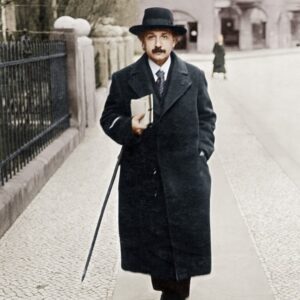Getting From Quantum Physics to Quantum Psychology; How Quantum May Underlie Our Emotional State
Can Quantum Physics Hold the Key to Happiness?
Excerpts and salient points ~
+ The Quantum Physics Theory Inspired Others
+ For example, in Quantum Healing, Deepak Chopra describes how a higher level of consciousness and energy (all around the body and not limited to the body) can help healing.
+ And Bruza and Whang, writing about quantum cognition in Trends in cognitive sciences (2015) explain how—as long as we don’t make any decision—we have endless possibilities in front of us, but those possibilities disappear once we make a decision to pursue a specific course.
+ But is it possible, when it comes to the mind, emotions, and behaviors, that quantum physics is much more than an analogy for how our brains work, but actually part of what determines how we think, feel, and behave?
Physicists talk about quantum physics, quantum mechanics, quantum entanglement, quantum computing but what if we could, by analogy, apply the quantum physics theory to our mind and talk about quantum emotions? What if a quantum emotion theory could explain how to get out of depression and into experiencing happiness?
+ Recently, neuroscientists and physicists have begun to explore ways that our brains, at least in part, function as quantum machines.
+ For instance, quantum brain, quantum mind, and quantum consciousness are cited in the Stanford Encyclopedia of Philosophy which explains how the quantum physics theory applied to superpositioned neurons and synapses could explain consciousness. And Sir Roger Penrose’s book, The Emperor’s New Mind, hypothesizes that quantum mechanics plays an important role in understanding what human consciousness is.
Source: Psychology Today. Chris Golbert, M.D., Ph.D., Can Quantum Physics Hold the Key to Happiness?
Content may have been edited for style and clarity.

